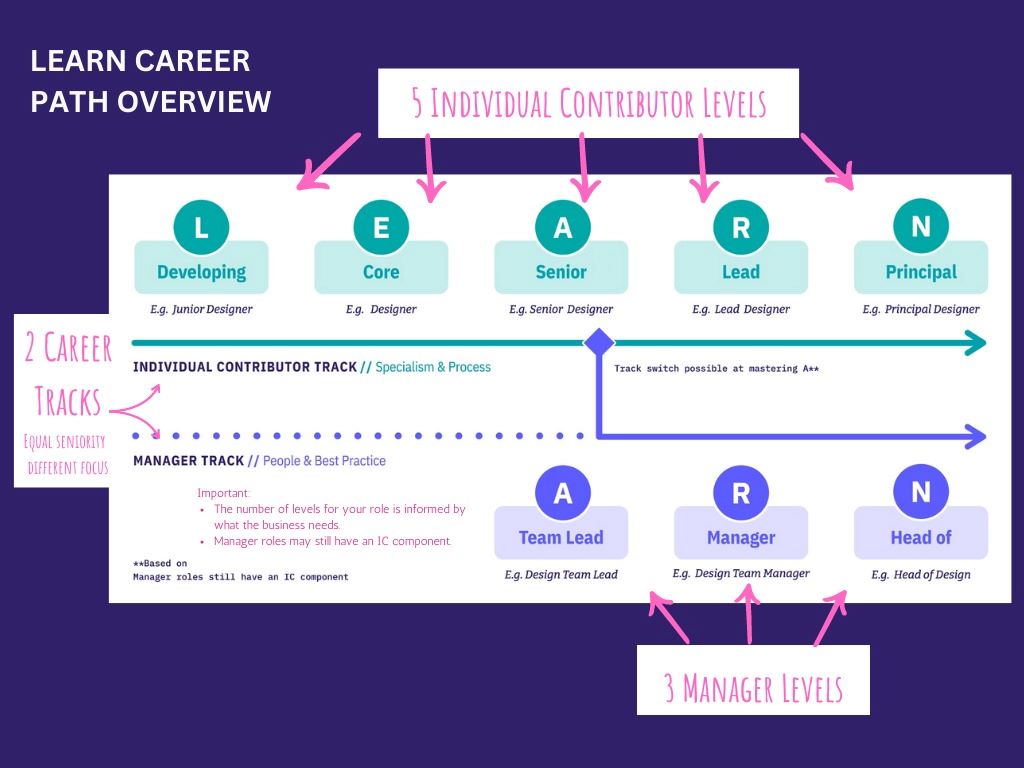Career advancement often presents professionals with important decisions about their next steps. The Local Advertising Journal frequently explores these workplace dynamics, particularly the distinction between coordinator and specialist roles. Understanding these positions can help both employees and managers make informed decisions about career development.
The difference between coordinator and specialist roles goes beyond simple job titles. These positions represent distinct career paths with unique responsibilities, skill requirements, and growth opportunities. Many organizations struggle with determining the right time for promotion and the appropriate career trajectory for their team members.
Knowing when to promote a coordinator to a specialist requires careful consideration of multiple factors. These include individual performance, skill development, organizational needs, and strategic business objectives. Making the right decision benefits both the employee and the company.
What Is a Coordinator Role?
Coordinators serve as organizational facilitators who manage processes, timelines, and communication between different departments or team members. Their primary focus involves ensuring smooth operations and maintaining project momentum. These professionals excel at multitasking and keeping various moving parts synchronized.
The coordinator position typically requires strong organizational skills, attention to detail, and excellent communication abilities. Most coordinators work across multiple projects simultaneously, serving as the central point of contact for updates, scheduling, and resource allocation. They often handle administrative tasks while supporting broader team objectives.
Entry-level coordinators usually have fewer years of experience but demonstrate potential for growth. They learn company processes, build relationships with colleagues, and develop foundational skills that prepare them for more specialized roles. This position serves as an excellent stepping stone for career advancement.
Understanding Specialist Positions
Specialists focus on specific areas of expertise within their field. Unlike coordinators who manage broad processes, specialists dive deep into particular subjects, technologies, or methodologies. They become the go-to experts for complex problems within their domain of knowledge.
The specialist role demands advanced technical skills, industry knowledge, and the ability to solve complex challenges independently. These professionals often hold certifications, advanced degrees, or extensive experience in their chosen specialty area. They contribute strategic value through their expertise rather than operational coordination.
Specialists typically command higher salaries due to their specialized knowledge and the value they bring to organizations. However, their career path may be narrower compared to coordinators who develop broader skill sets. The trade-off involves depth versus breadth in professional development.
Key Differences Between Coordinators and Specialists
The scope of responsibility represents one of the most significant differences between these roles. Coordinators manage wide-ranging activities across projects and departments, while specialists concentrate on specific technical or functional areas. This distinction affects daily tasks, decision-making authority, and career progression opportunities.
Skill development patterns also differ substantially between coordinator and specialist positions. Coordinators build general management abilities, communication skills, and process optimization capabilities. Specialists develop deep technical expertise, analytical skills, and subject matter authority that makes them invaluable for specific challenges.
Compensation structures often vary between these roles as well. Specialists frequently earn higher base salaries due to their expertise, but coordinators may have more opportunities for rapid advancement into management positions. The earning potential depends on industry, location, and individual career choices.
Signs It’s Time to Promote a Coordinator to Specialist
Performance indicators provide clear signals about readiness for promotion from coordinator to specialist roles. Consistently exceeding expectations, taking initiative on complex projects, and demonstrating leadership qualities suggest an employee is prepared for increased responsibilities. These behaviors indicate growth beyond basic coordination tasks.
Skill development milestones also signal promotion readiness. When coordinators begin solving problems independently, providing strategic input, and developing expertise in specific areas, they show specialist potential. The transition often occurs naturally as employees gravitate toward particular subjects or technologies.
Organizational needs play a crucial role in timing promotions appropriately. Companies may require additional specialist expertise due to new projects, technology implementations, or strategic initiatives. Aligning employee development with business requirements creates win-win scenarios for both parties.
The Promotion Decision Process
Evaluating promotion readiness requires systematic assessment of multiple criteria. Managers should review performance history, skill development progress, and demonstrated competencies against specialist role requirements. This evaluation helps ensure successful transitions and reduces the risk of promoting employees before they’re prepared.
Training and development planning becomes essential during the promotion process. Organizations must provide necessary resources, mentoring, and support to help coordinators succeed in specialist roles. This investment protects both the employee’s career advancement and the company’s business objectives.
Timeline considerations affect promotion success rates significantly. Rushing promotions without adequate preparation often leads to performance issues, while delaying deserved advancement can result in employee turnover. Finding the right balance requires ongoing communication and honest assessment of readiness factors.
Benefits of Strategic Career Progression
Employee satisfaction improves dramatically when organizations provide clear career progression paths. Workers who understand potential advancement opportunities remain more engaged and committed to their roles. This clarity helps reduce turnover and increases overall job satisfaction across the organization.
Organizational efficiency gains occur when employees advance into roles that match their strengths and interests. Specialists who genuinely enjoy their expertise areas tend to be more productive and innovative. Similarly, coordinators who thrive on managing processes contribute significantly to operational excellence.
Retention rates increase substantially when companies invest in employee development and career advancement. The cost of replacing experienced employees far exceeds the investment required for internal promotion and development programs. Strategic career progression protects valuable human capital investments.
Common Mistakes in Promotion Timing
Premature promotions represent one of the most frequent errors in career advancement decisions. Moving coordinators to specialist roles before they’ve developed necessary skills or experience often results in performance struggles and decreased confidence. These situations can damage both employee morale and team effectiveness.
Overlooking development needs during promotion processes creates additional challenges. Specialists require different skills than coordinators, and assuming automatic capability transfer often leads to difficulties. Proper training and support systems must accompany role transitions for optimal success.
Communication gaps about expectations can derail even well-intentioned promotions. Both managers and employees need clear understanding of new role requirements, success metrics, and available support resources. Regular check-ins during transition periods help identify and address issues early.
Creating Effective Development Programs
Structured development programs help coordinators build specialist-level capabilities systematically. These programs should include technical training, mentoring relationships, and graduated responsibility increases. Well-designed development initiatives prepare employees for successful role transitions while maintaining current performance levels.
Mentorship opportunities provide invaluable support during career transitions. Experienced specialists can guide developing coordinators through the challenges of increasing specialization. These relationships also help preserve institutional knowledge and strengthen team cohesion throughout the organization.
Measuring progress through specific milestones keeps development programs on track and provides clear feedback to participants. Regular assessments help identify areas needing additional focus while celebrating achievements along the way. This approach maintains motivation and ensures systematic skill building.
Conclusion
The decision of when to promote a coordinator to a specialist requires careful evaluation of individual readiness, organizational needs, and strategic objectives. Success depends on systematic assessment, proper preparation, and ongoing support throughout the transition process.
Understanding the fundamental differences between coordinator and specialist roles helps both employees and managers make informed career decisions. While coordinators focus on process management and broad coordination, specialists develop deep expertise in specific areas that provide strategic value to organizations.
Organizations that invest in thoughtful career progression programs benefit from higher employee satisfaction, improved retention rates, and enhanced operational effectiveness. The key lies in timing promotions appropriately while providing necessary support for successful role transitions.
Frequently Asked Questions
What is the typical salary difference between coordinator and specialist roles?
Specialists generally earn 15-30% more than coordinators due to their specialized expertise and strategic value to organizations. However, actual salary differences vary significantly based on industry, location, company size, and individual experience levels.
How long should someone work as a coordinator before becoming a specialist?
Most professionals spend 2-4 years in coordinator roles before transitioning to specialist positions. The timeline depends on individual skill development, performance, organizational needs, and available advancement opportunities within the company.
Can specialists move back to coordinator roles if needed?
Yes, specialists can transition to coordinator roles, though this typically occurs when moving to management positions that require broader operational oversight. Some professionals choose this path to gain diverse experience before advancing to senior leadership roles.
What skills are most important for coordinator-to-specialist transitions?
Critical thinking, problem-solving abilities, technical competency in the chosen specialty area, and independent decision-making skills are essential. Additionally, the ability to learn quickly and adapt to increased responsibility levels significantly impacts transition success.
Do all coordinators need to become specialists to advance their careers?
No, coordinators have multiple career advancement options including management roles, senior coordinator positions, or transitioning to entirely different functional areas. Specialist roles represent just one of many potential career paths available to experienced coordinators.
Read More:
What Tools Are Needed for Bending Metal?
Key Benefits of Product Development Services for Smart Manufacturing


